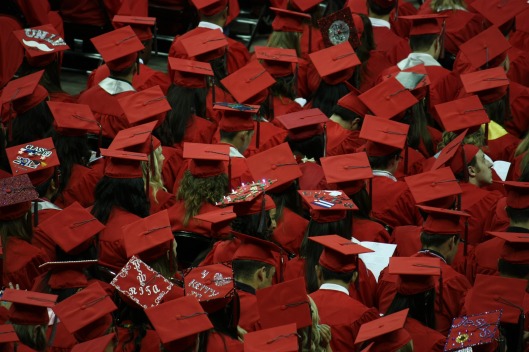 The preceding post on Australian Studies here prompted further reminiscence on that time.
The preceding post on Australian Studies here prompted further reminiscence on that time.
In one course that I did teach we looked at the Christian Crusades and their characteristics.
We considered the life of the foot soldiers in those times…being sold an idea…leaving loved ones for a heroic pursuit in distant lands…the cold…the heat…the suffering…the sometimes miserable and often undesirable food…the inferior living conditions…the homesickness…the strange cultures they experienced…the sadness as they lost friends on the way…the effort required to keep going.
Later on I posed the question of whether there were any contemporary parallels, and guided them to the idea that, as international students experiencing their own versions of the above, they too could be considered a type of crusader in pursuit of a paper Holy Grail on graduation day.
There were two other points that day that I wanted to explore further.
The first was to ask who they were doing it for. In the medieval version the crusaders were doing it for an invisible, thankless God offering rewards in a later life. And was it different today? I hoped to also equate the idea of an invisible, thankless God with capitalism, which also survives on the rather weak premise that if you suffer a lot now you will be rewarded later. But that path might have led quickly and dangerously close to my employer (I was working for a private company which was much more sensitive than it needed to be if its rhetoric was grounded in truth), so I stayed silent.
The other was through exploring what the crusading foot soldiers did after reaching Jerusalem. The answer seemed to be, broadly speaking, not much. Just a bit of prayer then a long walk home. So for them, what was it all for? Sometimes having skipped the prayers and flying instead, I wonder if many contemporary US soldiers departing from a recent war in Iraq asked the same question.
On returning home I doubt most crusading foot soldiers lived a life of luxury, resuming lives in often brutal communities with physical and psychiatric injuries further limiting their economic productiveness.
No parallels again with returning US soldiers there of course.
But as I suggested to these marvellously smart and ambitious Southeast Asian students, on your return home, having reached that moment of graduation, will you really change the way things are done? Will you, can you, can anyone, shift the culture of the workplaces and communities you will enter? Will the people there be receptive to the new ideas, different understandings and challenging concepts you will get here?
I think they knew the answer, yet the overarching question could still be asked. If not, then what God are you really serving?
Note – A slightly different version of this post was posted here.
